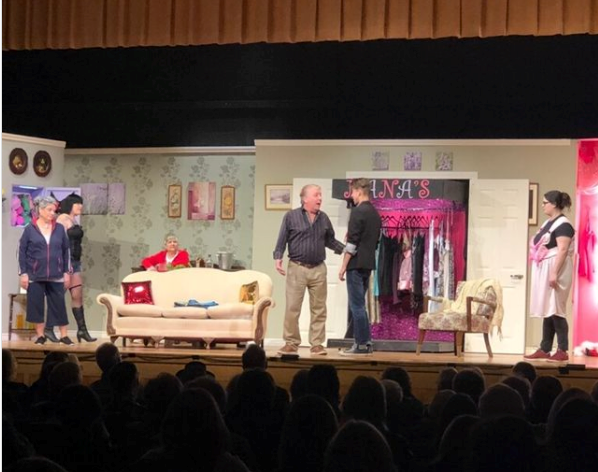Thorold Community Theatre is embarking on a new adventure as its actors will be taking place in recording booths in September to produce the group’s first radio drama.
This past month rehearsals began via Zoom for the actors to begin working on the script for “…and then the lights went out,” a comedic spin on a classic film noire by Alberta-based playwright Andy Garland.
It centres around the struggles and strife of hard-boiled private eye Jim O’Reilly, as he is forced to navigate a rough landscape of brutes, criminal masterminds, and naive rookie cops.
“Our actors have never done radio before, and are getting their heads around the nuances of their characters with voice effects and learning how to work the microphone,” said sound engineer Jim Park.
“We are used to working on a stage, and running up and grabbing lapelles and shaking them. It’s a bit of exercise to learn how to convey a scene like that with only audio.”
The theatre was recently one of a handful tourism-related businesses in Niagara that benefited from a federal $2 million grant from the federal government to help the industry get back on its feet.
The government grant helped the theatre to get some equipment to eventually set up recording studios inside Holy Trinity Church in Thorold, and get to work.
Park said the help was appreciated, since the company’s activities were halted by the pandemic, leaving them scrambling for avenues to promote their art.
“We were on the go, with two productions per year. As long as I have been involved, most of the shows would nearly sell out. We’d do eight performances over three weeks in front of a 200-seat audience, that was mostly 80 or 90 percent full.”
Now, equipped with scripts and microphones, the company is planning its ticket-model and how to monetize the project, which is significantly different from selling physical tickets to an in-person show, which the group hopes to be able to host as soon as regulations allow it. But the future isn’t crystal clear.
“I suspect we will go back to doing farces. But it depends largely of how much of an audience we will be allowed to host. If we have an arena 80 percent full, it will be enough to recuperate our costs and fund the next production. If we are going to cut the audience in half, we need to charge people more,” said Park.
“Or, if radio drama works, it might be a side gig for some of us.”
